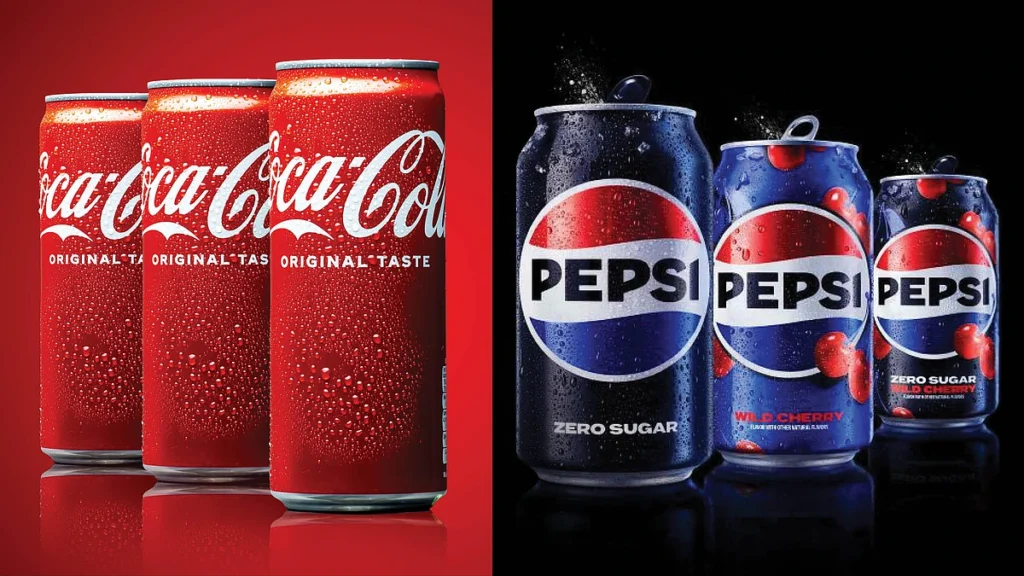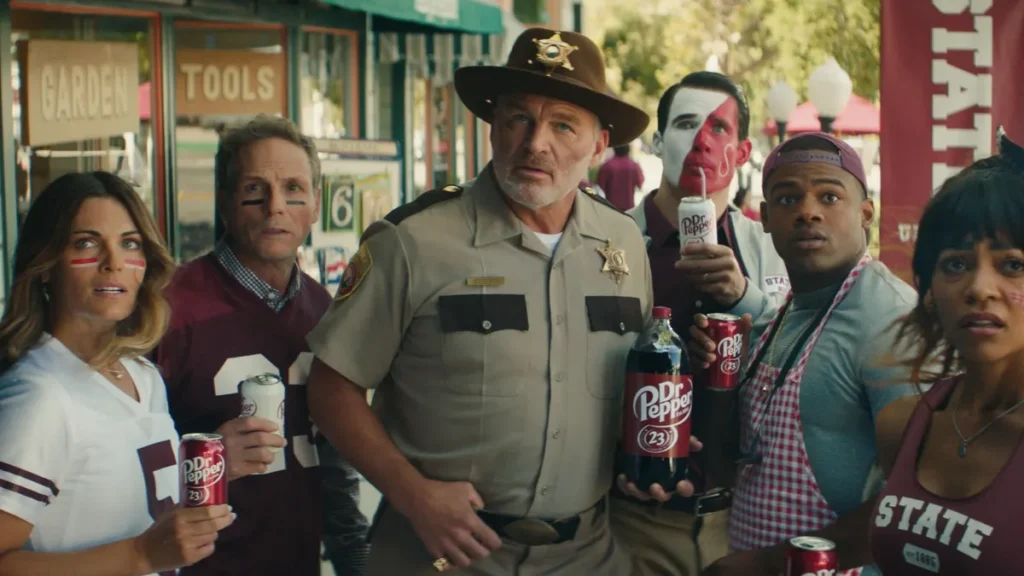PepsiCo has slipped to third place in the soda wars behind Coca-Cola and Dr Pepper. Now, activist investor Elliott Management has built a $4 billion stake and is demanding major changes. Here’s what’s at stake.
Table of Contents
Introduction: Pepsi’s Make-or-Break Moment
PepsiCo, one of the world’s most iconic brands, is facing a crisis of identity and performance. Long locked in the “cola wars” against Coca-Cola, Pepsi has now fallen even further — losing the No. 2 spot to Dr Pepper in 2024.
Adding fuel to the fire, activist hedge fund Elliott Management has announced a massive $4 billion stake in PepsiCo, demanding radical restructuring to turn the company around. For Pepsi, this isn’t just about catching up with Coke anymore — it’s about survival in a rapidly shifting consumer market.
So what went wrong for PepsiCo? And can Elliott’s activist push actually save the brand?
Pepsi vs. Coke: Losing the Soda Wars

For decades, the battle between Pepsi and Coca-Cola has been a defining rivalry in American business. But in recent years, Coca-Cola has pulled ahead with stronger branding, global reach, and a more focused product portfolio.
The shocker came in 2024 when Dr Pepper overtook Pepsi as the second-largest soda brand in the U.S., thanks to clever marketing partnerships with college football and flavor innovations like strawberries and cream.
Meanwhile, PepsiCo’s soda division has struggled:
- Market share decline: Pepsi’s core beverage sales are shrinking.
- Too many brands: From Mountain Dew to Aquafina, critics say Pepsi is spread too thin.
- Brand confusion: Coca-Cola has streamlined its portfolio, while Pepsi juggles dozens of sub-brands.
This decline has now made PepsiCo an easy target for activist investors.
Elliott Management Enters the Scene
Elliott Management, one of Wall Street’s most aggressive activist investors, revealed its $4 billion stake in PepsiCo and issued a blunt letter to the board:
“PepsiCo finds itself at a critical inflection point. The company has an opportunity – and an obligation – to improve financial performance and regain its position as an industry leader.”
Elliott isn’t known for quick wins. The firm often takes long-term positions and forces companies into deep restructuring — sometimes through board fights, proxy battles, or leadership changes.
Its plan for PepsiCo includes:
- Refranchising bottling operations, similar to Coca-Cola’s strategy.
- Selling off weaker brands that weigh down growth.
- Sharpening focus on beverages and snacks that drive consumer loyalty.
This is no small ask. PepsiCo owns a sprawling empire of food and drink labels, from Lay’s and Doritos to Gatorade and Quaker. But Elliott argues the company’s size has become a liability rather than a strength.
PepsiCo’s Struggles Beyond Soda
PepsiCo has long leaned on its snack empire — particularly Frito-Lay — as a growth driver. For years, chips and crackers balanced out weak soda sales.
But even snacks aren’t immune to shifting consumer habits:
- Inflation-weary consumers are cutting back on brand-name snacks in favor of cheaper generics.
- Health-conscious buyers are turning away from chips, sugary drinks, and processed foods.
- GLP-1 weight-loss drugs like Ozempic are dampening demand for junk food and sodas.
The result? PepsiCo’s stock has fallen 15% over the past year, underperforming the market and raising alarms among big investors.
The Dr Pepper Shockwave

Perhaps the most embarrassing blow came when Dr Pepper overtook Pepsi in 2024 as the No. 2 soda brand.
Key factors behind Dr Pepper’s rise:
- Targeted marketing: Heavy investment in sports, especially college football.
- Flavor innovation: Launches like strawberries & cream resonated with younger consumers.
- Cult following: Dr Pepper carved out a quirky, loyal base that Pepsi hasn’t matched.
For Pepsi, this isn’t just a numbers game — it’s a brand crisis. Losing ground to Coca-Cola was one thing. Losing to Dr Pepper is a wake-up call that the Pepsi strategy is fundamentally broken.
Activist Pressure Meets Industry Turmoil
Elliott’s timing is no accident. The food and beverage industry is undergoing seismic change:
- Inflation pressures are pushing consumers to trade down.
- Health regulators like HHS Secretary Robert F. Kennedy Jr. are pushing companies to cut artificial additives.
- Mega mergers are reshaping the landscape — Kraft Heinz splitting in two, Mars’ $30B acquisition of Kellanova, and Ferrero’s $3.1B purchase of WK Kellogg Co.
PepsiCo is caught in the middle. If it doesn’t act decisively, it risks being left behind in a market where consumer preferences are shifting faster than ever.
What Elliott Wants: Breaking Down the Strategy
Elliott’s demands can be summed up in three buckets:
- Streamline the brand portfolio
- Sell off weaker or non-core businesses.
- Focus resources on Pepsi, Mountain Dew, Gatorade, and Frito-Lay.
- Fix bottling operations
- Refranchise bottlers to improve efficiency and profitability, copying Coca-Cola’s model.
- Restore investor confidence
- Cut costs, sharpen marketing, and show Wall Street a clear growth plan.
The activist’s endgame? To transform PepsiCo from a lumbering conglomerate into a leaner, more profitable competitor.
PepsiCo’s Response: Open, But Cautious
PepsiCo issued a diplomatic statement:
“PepsiCo maintains an active and productive dialogue with our shareholders and values constructive input on delivering long-term shareholder value.”
Translation: Pepsi is willing to listen — but it won’t roll over without a fight.
Whether the company resists Elliott or embraces change, one thing is clear: the pressure isn’t going away.
What This Means for Investors

For investors, the battle for Pepsi’s future is both risky and full of opportunity:
- Bull case: Elliott forces Pepsi to restructure, cut waste, and sharpen its focus, potentially boosting profits and stock price.
- Bear case: Resistance from management leads to years of stagnation, while Coca-Cola and Dr Pepper keep gaining share.
- Wild card: More activist investors pile in, pushing for a PepsiCo breakup or spin-offs.
Pepsi vs. Activists: What History Tells Us
Activist investors have a mixed track record in consumer brands:
- Procter & Gamble: Faced an activist battle that forced leadership changes and product strategy shifts.
- Nestlé: Activists pushed for faster growth, leading to portfolio reshuffles.
- Kraft Heinz: Restructured under activist pressure but struggled with debt and execution.
For Pepsi, the question is whether Elliott can spark a turnaround — or whether it risks weakening an already fragile brand.
Conclusion: A Pivotal Year for PepsiCo
The “battle for Pepsi’s future” isn’t just about soda sales. It’s about whether one of America’s most iconic companies can reinvent itself in the face of activist pressure, consumer shifts, and ruthless competition.
With Coca-Cola dominating, Dr Pepper surging, and Elliott pushing for drastic reform, PepsiCo’s next moves could define its legacy for decades.
For now, investors, consumers, and competitors alike are watching closely — because the cola wars have entered a whole new phase.
FAQs
1. Why did Pepsi fall behind Dr Pepper?
Dr Pepper invested heavily in marketing, sports partnerships, and flavor innovation, while Pepsi struggled with brand identity and overextension.
2. What does Elliott Management want from PepsiCo?
Elliott wants PepsiCo to restructure by refranchising bottlers, selling off weaker brands, and focusing on core businesses like Pepsi, Mountain Dew, Gatorade, and Frito-Lay.
3. How has PepsiCo’s stock performed recently?
PepsiCo’s stock has dropped about 15% in the past year, reflecting investor concerns over slowing sales and weaker performance compared to competitors.
4. Could PepsiCo be broken up?
It’s possible. Some activists may push for a split between PepsiCo’s beverage and snack businesses, similar to how Kraft Heinz recently announced a corporate split.
5. What challenges does Pepsi face beyond soda?
Shifting consumer tastes, inflation pressures, the rise of weight-loss drugs like Ozempic, and regulatory scrutiny over additives are all creating headwinds.

